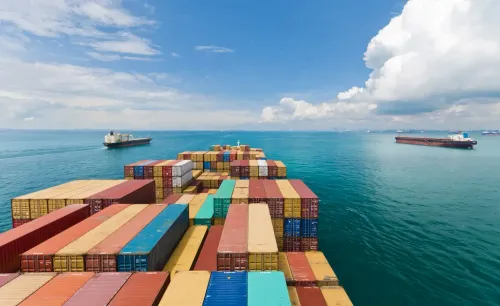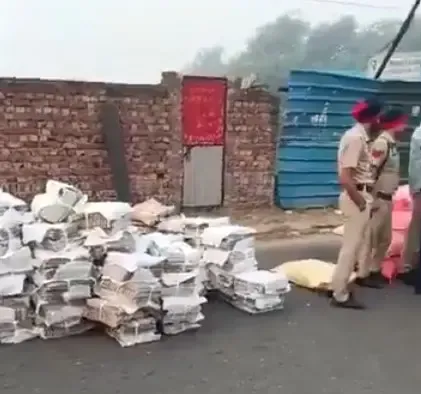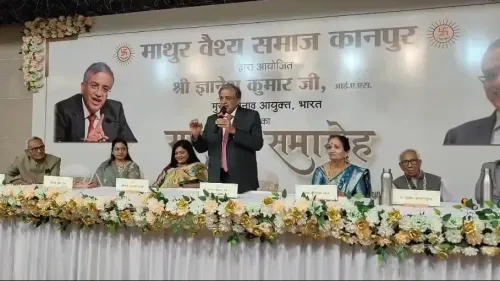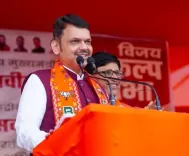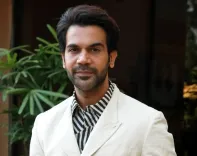Karnataka Government's Priority: Ensuring Safe Drinking Water, Says D. K. Shivakumar Amid Farmers' Concerns
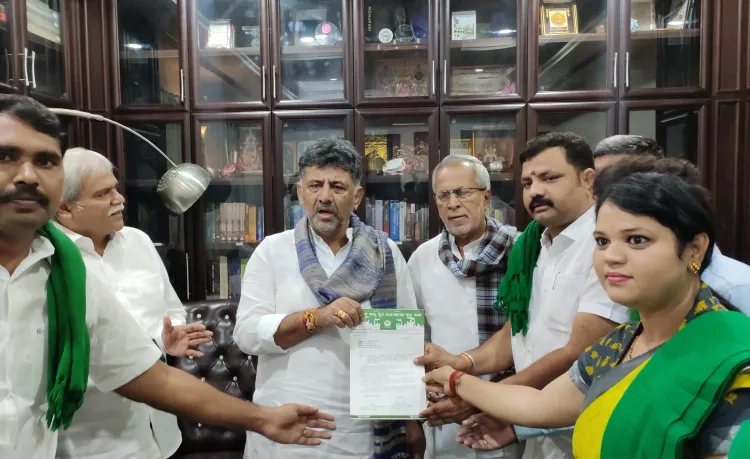
Synopsis
Key Takeaways
- D. K. Shivakumar emphasizes drinking water as a top government priority.
- Farmers request water release from Narayanapur Basavasagar Reservoir.
- Coordination between states is vital for resolving water issues.
- BJP's protests against price hikes scrutinized by Shivakumar.
- Drinking water tariff adjustments deemed necessary for sustainability.
Bengaluru, April 2 (NationPress) Following a meeting with a delegation of farmers, Karnataka's Deputy Chief Minister D. K. Shivakumar emphasized that ensuring drinking water access remains the government's primary focus. The farmers' representatives, hailing from the Karnataka State Farmers' Association and Farmers' Army, were led by Minister Sharanabasappa Gowda Darshanapur during their visit to Shivakumar's residence in Sadashivanagar.
They formally requested the release of water from the Narayanapur Basavasagar Reservoir's right and left canals until April 15 to support their crops. Shivakumar confirmed that Chief Minister Siddaramaiah had addressed a letter to his counterpart in Maharashtra, Devendra Fadnavis, regarding the Krishna river water concerns.
In a media briefing, Shivakumar mentioned that, against advisories, farmers in the region have continued their second crop cultivation. When prompted about the necessity of Central government intervention, he remarked, 'Neighbouring states should coordinate and resolve this issue collectively.'
The farmers' group requested water access for irrigation across 89,000 hectares, emphasizing the need to release 6.60 TMC of water reserved for agricultural use from the reservoir to protect their crops.
Regarding the ongoing agitation by the BJP over rising prices, Shivakumar stated, 'Their protest against the milk price increase demonstrates their anti-farmer stance.' He noted that while electricity prices had been reduced without BJP's objection, they should similarly address the costs of petrol, diesel, and cattle feed. Despite price hikes, he assured that prices for milk and curd in Karnataka remain lower than in other states.
On the topic of drinking water tariffs in Bengaluru, Shivakumar commented, 'An essential increase of one paisa per litre is unavoidable. We are committed to ensuring that this does not affect the impoverished. The Water Board faces an annual loss of Rs 1,000 crore, making a price adjustment necessary for future projects, but we will first educate the public about water conservation.'
Addressing waste management, he criticized the BJP for past legislation and cess impositions, asserting they are now working to alleviate these burdens. He instructed officials to disseminate information about these changes, emphasizing the need for clarity amid political disputes.
In a direct critique of Union Minister H. D. Kumaraswamy, Shivakumar pointed out that Kumaraswamy's brother leads the milk cooperative unions and challenged him to reduce milk prices in Hassan. 'Our policies aim to empower farmers and local communities,' he concluded.


